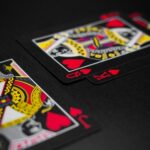Sleep is an essential element of your life. You think nothing is happening when you sleep, but your brain parts are active all the time. If you do not take good sleep, it will affect your health, physically and mentally. Sleep is also necessary because your body can rest and restore the energy for work again. A night of sleep help to remove your stress and illness. A rough night, insufficient sleep, or lost sleep affects your health in many ways.

What is Fake Sleep?

Fake sleep means to pretend to be asleep. When you want to avoid someone, you assume to be asleep when you are not sleeping. Fooling people so that they don’t bother you or you listen to them and watch their actions.
When Should You Do It?
Now that you know how to fake sleep, you may wonder which time of day you should pretend to fake sleep. There are times when you shouldn’t fake sleep, but there are other times where it can work perfectly fine. There is some time where you should try to fake sleep.
One time you can do this is after you go to sleep and find out that you’re having trouble falling asleep. Since you didn’t notice this problem until after you went to sleep, it makes sense to pretend that you’re sleeping. Because you’re already in bed, your chances of by mistake telling anyone that you’re awake aren’t as high.
Another time you can fake sleep is if you need to take a nap. Just remember to keep your eyes closed while on the verge of napping. Otherwise, your sleep loss, and you won’t sleep it properly. And lastly, you can pretend to sleep whenever it suits you, so long as you’re in a situation where you can successfully disguise it.
Sleep Without Being Noticed:
If you follow everything listed above, you ought to be able to effectively fake sleep. However, there are still certain factors that can come into play. For example, if you’ve got something that’s moving that could wake you up, such as an alarm clock, you’ll want to turn off your phone or put your headphones over your ears.
Doing this will reduce the likelihood that you’ll wake up. Also, if somebody is talking near you while you try to fake sleep, you’ll want to cover your mouth so they cannot see you breathe out. Otherwise, they’ll know that you’re awake!
Not To Get Caught:
To prevent others from catching you lying down, you’ll first want to look for a spot that isn’t crowded. Second, it’s essential to make sure that you’re wearing something light. For example, if you’d rather not wear clothes, you might want to wear long pants and a jacket.
Third, you should ensure that you’re using blankets that aren’t too thick. Finally, make sure that you keep your face covered when you’re pretending to sleep. Of course, while you might not want to do any of these things, you shouldn’t let them stop you from trying to fake sleep.
Fake Sleeping At Home:
Some people choose to fake sleep at home instead of going to a store. It is much less risky since you’re already in your environment. Additionally, you’re also closer to the comforts of your bed, which makes falling asleep easier. Nonetheless, it does require you to act as though you’re sleeping even if you’re technically awake.
For this purpose, you’ll need to change positions often, get rid of all unnecessary objects from around your bed, and dress for sleep. You might want to consider buying some earplugs to listen to music. You’ll hear what sounds like noise coming from outside through the noise-canceling device!
Wake Up And Lie Down Again:
When you’re ready to wake up, stand up and walk away from the area. Then, lie back down again so that you’re asleep as soon as possible. If you feel the urge to move, then you should immediately jump up again and head toward the door.
Pretend A Nightmare Is Coming On:
Most people dream about a range of scary scenarios once in a while. In particular, I’ve had dreams about zombies several times throughout my life. As a result of these nightmares, I will usually pretend that zombies attack me when faced with this situation. However, I still try my hardest to wake up quickly enough without making too much noise.
Don’t Be Loud:
If you can’t stay calm or find yourself unable to fall asleep, you might think about taking a sleeping pill instead of faking sleep. Some medications, such as Ambien, help reduce anxiety and provide a night of more restful sleep. Furthermore, they tend to be effective for short periods. Still, don’t use these pills for extended periods. They can become addictive.
Take Your Time Before Falling Asleep:
Falling asleep can be difficult for many individuals. Therefore, you must prepare yourself beforehand. After all, how could you possibly expect to fall asleep while you’re stressed? As a result of this stress, you might be unable to fall asleep until later on. Fortunately, there are some simple ways to relax before attempting to fake sleep. First, you should exercise regularly.
Exercise can help relax muscles and release tension. You have to make sure that you go to bed at the correct hour. The ultimate information you have crashes right after eating dinner or getting off work. It’s best to avoid doing anything too stimulating in the hours leading up to bedtime. Finally, read something lighthearted before bed to reduce your stress levels.
Make Yourself Sick:
If you’re feeling crazy, you might think about making yourself sick. Many people do this to treat themselves because it works incredibly well. Of course, you won’t want to eat unhealthy foods and drinks to achieve this effect. Instead, I’d suggest drinking lots of water and avoiding caffeinated beverages. When you eventually start throwing up, you’ll experience intense feelings of nausea and dizziness. These sensations are almost identical to those you would get when you were ill.
Drink Too Much Water:
It is the most popular way to fake sleep involves drinking a lot of water and cold beverages. Unfortunately, this method probably won’t work unless you drink large quantities of liquid throughout the night. Even so, not approved. Swallowing water cause stomach cramps, bloating, and other symptoms.
Eat Lots Of Sugar:
Many people assume that sugar is wrong, but this substance can improve your mood and lead to a better-quality sleep if appropriately used. That said, you shouldn’t consume any food high in sugar within four hours of going to sleep. You need to limit your intake during this period. Additionally, it’s crucial not to have sugary snacks before bedtime. Avoiding food containing sugar ensures that your blood sugar spike stays steady. It helps promote a good night’s sleep and avoids waking up hungry.
Take Tea Before Bed:
Tea and coffee provide caffeine which causes tiredness and drowsiness. However, these two substances can work wonders if taken just before sleeping. Additionally, tea is rich in tannins and polyphenols, which can prevent dehydration. These antioxidants provide the body with nutrients as well as helping to fight fatigue.
Take Coffee Before Bed:
Coffee affects sleep. If you take the coffee excellent before bed, it will reduce your sleep time, disturbing your day. The consumption of caffeine equivalent of just 2 ounces of coffee per hour still got a kick. A cup of coffee lost your sleep.
Use The Right Pillow:

Everyone knows how beneficial a comfortable pillow can be to improve the quality and length of your sleep. However, some pads aren’t always ideal in the market. Different pillows include memory foam pillows, flat pillows, neck support pillows, and orthopedic pillows.
Memory foam pillows ensure proper alignment while preventing pressure points from forming. It’s easy to fall asleep and reduce toss and turning since the head doesn’t need to worry about the pillow position. Orthopedic pillows help align the head and spine while relieving stress on joints. Neck support pillows lift the head off the mattress so that the user can relax their neck muscles.
Exercise:
Exercise raises serotonin levels, which helps promote deeper, dreamier sleep; according to a study performed by researchers from Carnegie Mellon University, exercising before bedtime increases feelings of well-being. Plus, people who exercise earlier in the evening tend to experience fewer nightmares and have better dreams. A 10-minute walk is also crucial for good sleep.
Stay Hydrated:
The human body needs water for digestion, sweating, breathing, muscle function, emotional regulation, and sexual fulfillment. Water is also necessary for producing hormones that regulate our sleep cycles. Getting dehydrated means having less energy than average. In addition, warm drinks plenty of water can reduce anxiety levels. Drink warm water with lemon juice before bedtime to put yourself in a good mood and prepare your system for restful slumber.
Eat Well Before Bed:
Foods containing carbohydrates release sugar into the bloodstream faster than foods containing protein or fat, and it makes the coaster of energy high in your body. Although this isn’t necessarily bad news, too much sugar can cause insulin spikes, making it harder to fall asleep. Foods highest in carbs include dairy products, white bread, pasta, rice, potatoes, juices, and soft drinks. Pasta, rice, pastries, cookies, crackers, chips, candy, soda, sugary breakfast cereals, fruit juices, and alcohol.
As an alternative, choose cold fatty cuts like turkey, ham, bacon, and pork tenderloin; lean proteins such as fish, tofu, beans, and chicken; vegetables and fruits; nuts; seeds; healthy oils such as olive oil and avocado oil; and milk alternatives such as soy, almond, and coconut milk instead of processed food items.
Healthy snacks include carrot sticks, celery, apples, oranges, bananas, cucumbers, pumpkin seeds, almonds, sunflower seeds, blueberries, kale, and cheese. Note: These recommendations don’t apply to individuals taking blood thinners because they could increase the risk of bleeding.
Make Your Room Comfortable:
The room temperature should be 60 to 70 degrees Fahrenheit. A calm environment makes it harder to fall asleep by triggering nighttime skin flushing reactions. Also, ensure your bedroom has no strong smells, including perfume or cleaning products.
Meditate Before Going to Bed:
Meditation boosts serotonin, a brain hormone responsible for feeling relaxed, happy, and contented. People who meditate tend to wake up earlier than others. By performing mindfulness meditation 30 minutes before bedtime, you may even improve the quality of your sleep. Meditation techniques include mindful yoga and breathing exercises. Start small and work toward longer sessions.
Practice Good Breathing Patterns:
Breathe deeply for 2-3 minutes while visualizing all negative thoughts leaving your body through your toes. Repeat this exercise every morning until you feel relaxed. Once this becomes second nature, start working on other aspects of respiratory breath. This technique will lead you deeper into the therapeutic benefits of sleep and help you relax during stressful times. Some people find it helpful to do slow movements, like walking, for 15 minutes before sleeping.
Read An Uncomplicated Book:

Reading books helps you focus your mind and relaxes you to a level conducive for deep sleep. Choose a book with a straightforward plot so you won’t require any mental analysis once you put down the book. Avoid reading anything that you’ll remember from the day or week prior. It should be something that you haven’t read in months.
Get Up Early Or Late Based On Body Clock:
Getting up is probably easier than getting up late when it comes to losing sleep. Studies show that when you wake up simultaneously every day, your body clock adapts automatically. You have to follow the rule won’t need to set any alarms, which helps maintain a consistent sleep schedule.
Avoid Alcohol:
Alcohol inhibits melatonin production in our bodies and disrupts the circadian rhythm, i.e., the natural 24-hour cycle. It affects the quality of our sleep and may lead to sleep disorders such as insomnia.
Read A Book Or Listen To Music:
Reading thought to provide mental stimulation while listening to relaxing music helps promote sound sleep. Reading books or listening to soothing music can help you prepare for sleep.
Heart rate in fake sleep:
The higher the heart rate during rest, the lower the heart rate during sleep. The opposite holds also. Heart rate during sleep is usually slower than during rest.
Bad night:
What’s terrible about this? If it’s affecting your performance, then rest assured that it could be worse. People who suffer from “Bad Night” experience sleeplessness so severe that they end up losing their jobs. According to the National Sleep Foundation, bad nights happen when someone loses.
Restorative sleep:
This is an essential part of a healthy lifestyle. It is difficult for us to achieve, and it requires some serious planning. Here are our top tips on how to get your best night’s rest ever!
Stages of Sleep:

Four stages of sleep are divided into two parts, Non-REM And REM Sleep.
- Non-REM sleep: This stage is divided into 3 parts. In the last 2 parts, you sleep deeply.
- REM sleep: In this stage, you sleep within an hour or hour and a half, vivid dreams come this sleep.
Hours of sleep:
Sleep is essential for every age. Sleep powers your mind and fortifies your body system. Newborn babies sleep more for their development and growth as compared to teens and adults. Adults and 65 + age people should sleep 7 to 9 hours of sleep per night.
The Rhythm of Sleep:
The natural rhythm of body cycles of 24 hours of your body that work as the sleep-wake cycle. You have a problem falling asleep and get up often during sleep time.
Natural light:
The natural light restarts your body and helps you be active all day by opening the curtains and letting the dose of sunshine come inside because natural light is best for you compared to the indoor bulb.
Normal bedtime:
You must set your bed on time to get a good sleep because your energy level increases when you sleep Welles. The usual bedtime is 7:00 to 9:00 pm, but the time depends on age.
Start your day:
Your day must start with carbs and healthy protein. The afternoon nap is the ideal remedy for mental health. If you stick to the same sleep routine, you get restorative sleep, but sometimes, a less-than-stellar night’s sleep is inevitable.
Sleep Medicine:
If you want to solve the sleeping problems, you need to take the proper medication. There are many types of sleep medicine available in the market, like melatonin sleep medicine, antihistamine sleep medicine.
Hi I’m Bilal Malik, a digital marketing and blogging expert holding years of experience.









